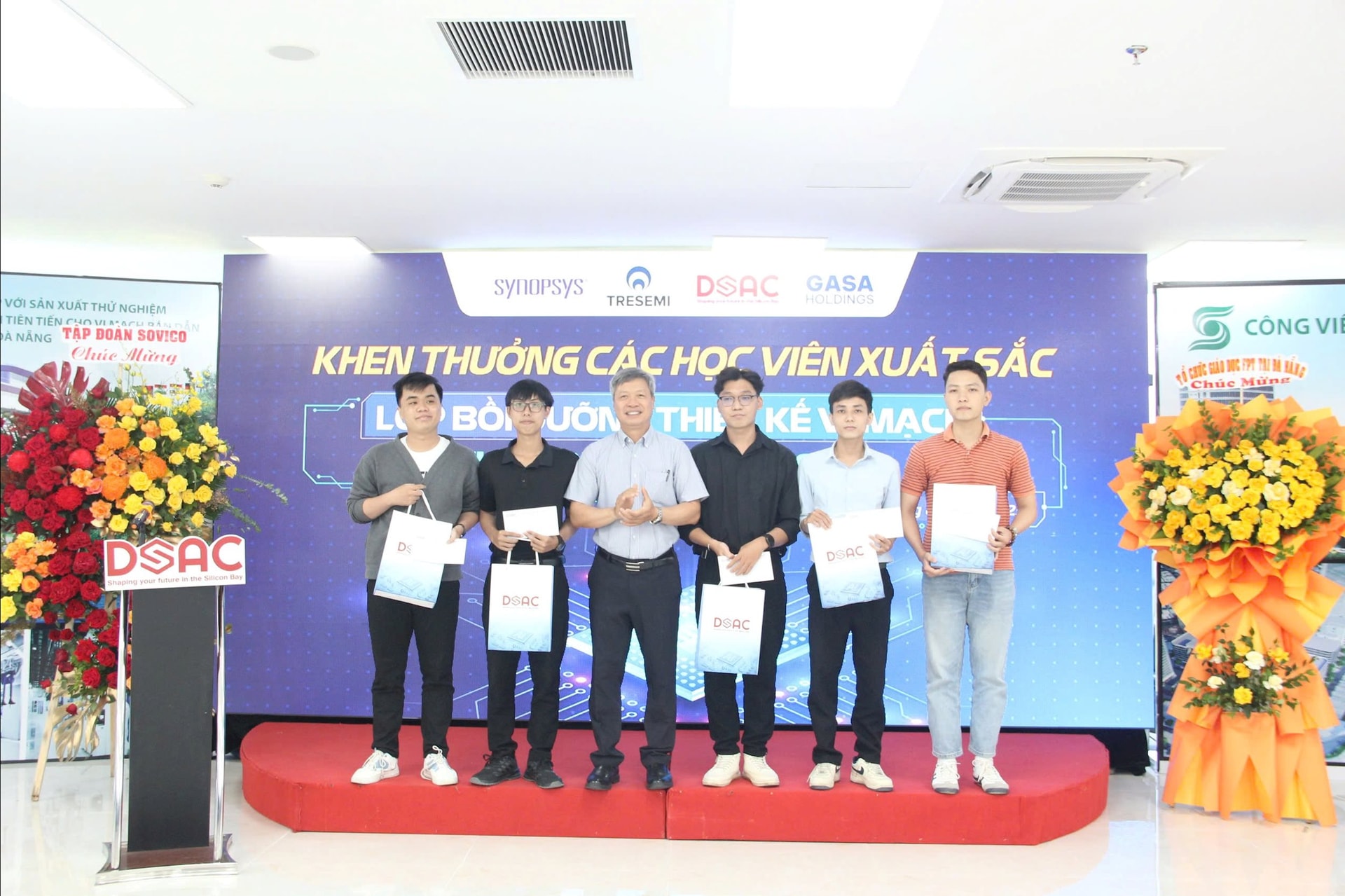
From policies to attract experts, improve training quality to building strategic alliances between schools, research institutes and businesses, the city has gradually formed a human resource ecosystem to serve cutting-edge technology industries such as semiconductor design and artificial intelligence (AI).
International standard training links
Mr. Le Hoang Phuc, Director of the Danang Center for Research and Training in Microchip Design and Artificial Intelligence (DSAC), said that the center has organized 6 training courses with 255 participants, such as: basic microchip design training course for local lecturers; basic microchip design training course for local lecturers and students; and VLSI - Physical Design training course.
The center also applies the "Train the trainer" model, inviting experts from businesses and research institutes to train lecturers, who then return to teach students.
DSAC also cooperates with businesses to select excellent students from schools for training from basic, intermediate to practical training at projects, helping students to be ready to meet the requirements of businesses immediately after graduation.
Mr. Le Hoang Phuc said that the vision of the center is to become an excellent training center in the field of semiconductors and AI, acting as a bridge between businesses - schools - the state. The ultimate goal is to contribute to creating "Made in Vietnam" chip products and building "AI sovereignty " for Vietnam, meaning products are developed in Vietnam and Vietnamese data is stored domestically. The center aims to not only train high-quality human resources but also promote investment, transfer international technology, develop specialized projects, and contribute to the digital economy of Da Nang.
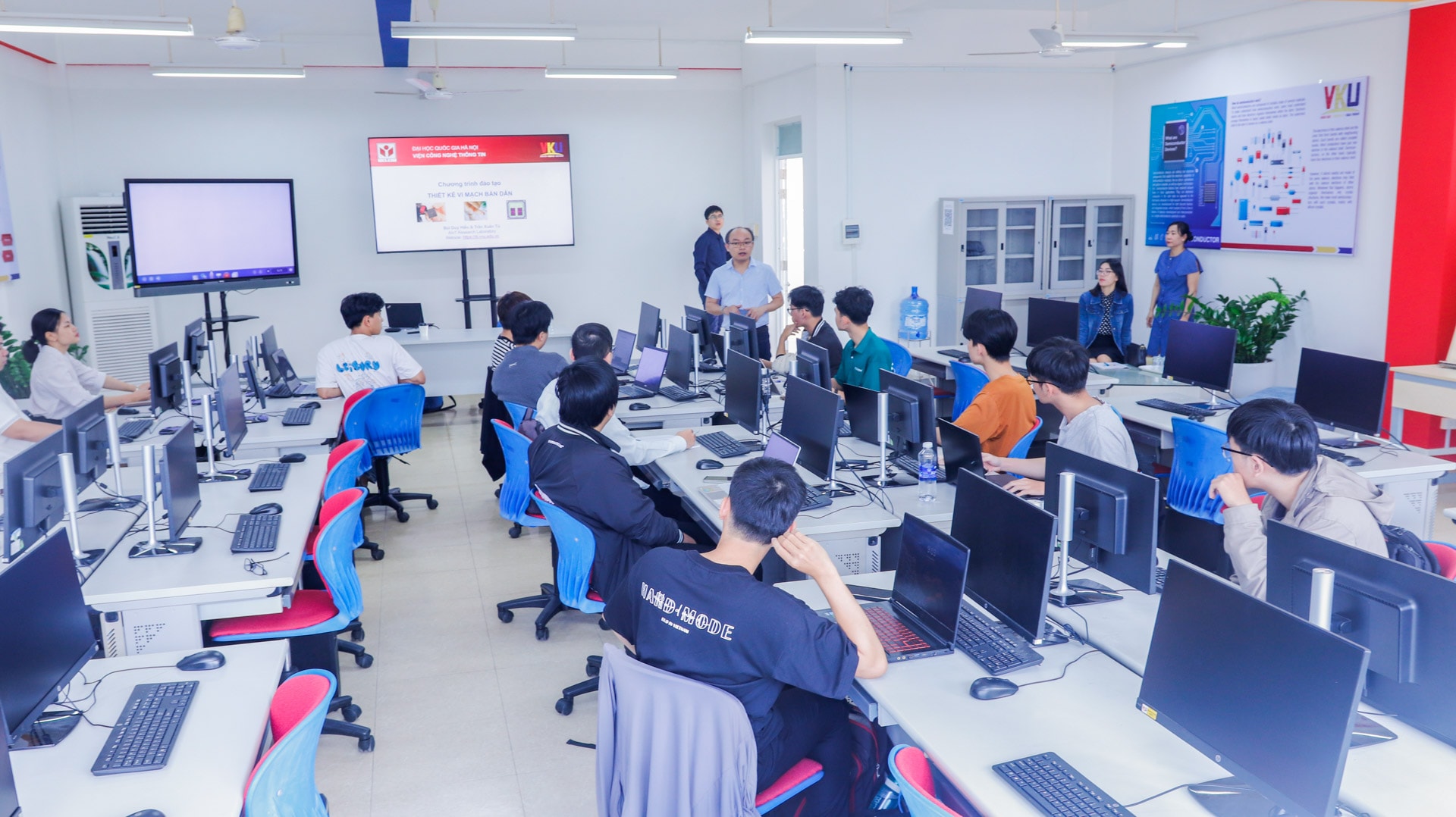
Recently, DSAC Center closed the VLSI - Physical Design microchip design class and opened the English class specializing in semiconductors. The VLSI - Physical Design microchip design class, implemented from April 2025, was organized in collaboration with TreSemi, Synopsys, GASA and Sovico, training 31 students who are final year students and lecturers in the fields of electronics - telecommunications, computer engineering, IoT and information technology.
Mr. Phil Hoang, semiconductor expert, founder of TreSemi (USA) who taught the class, shared: “Da Nang has taken the right steps in preparing semiconductor human resources. The city has specific projects, connecting the State, businesses, schools and experts to orient training and production of globally competitive chips. Through these classes, it helps promote the development of high-quality human resources to meet the requirements of businesses in the field of microchips and semiconductors. This is also an opportunity for Da Nang to have enough international-standard human resources to prepare for the new wave of investment.”
In addition, DSAC Center also cooperates to open specialized semiconductor English classes focusing on communication skills, CV writing, personal storytelling, interview answering and optimizing LinkedIn profiles according to international standards.
According to expert Mark Filshie, who has 18 years of experience recruiting senior technology personnel in Asia and directly teaches, “Vietnamese engineers not only need good expertise but also need to demonstrate professionalism. This program will help them be more confident when entering the global playing field.”
Expand training and improve lecturer standards
Da Nang aims to attract at least 5,000 high-quality human resources in the field of semiconductors and 3,000 artificial intelligence human resources by 2030. With this goal, in 2024, 8 universities and colleges recruited 600 students in the field of semiconductors and microchips; it is expected that in 2025, about 1,000 students will be recruited.
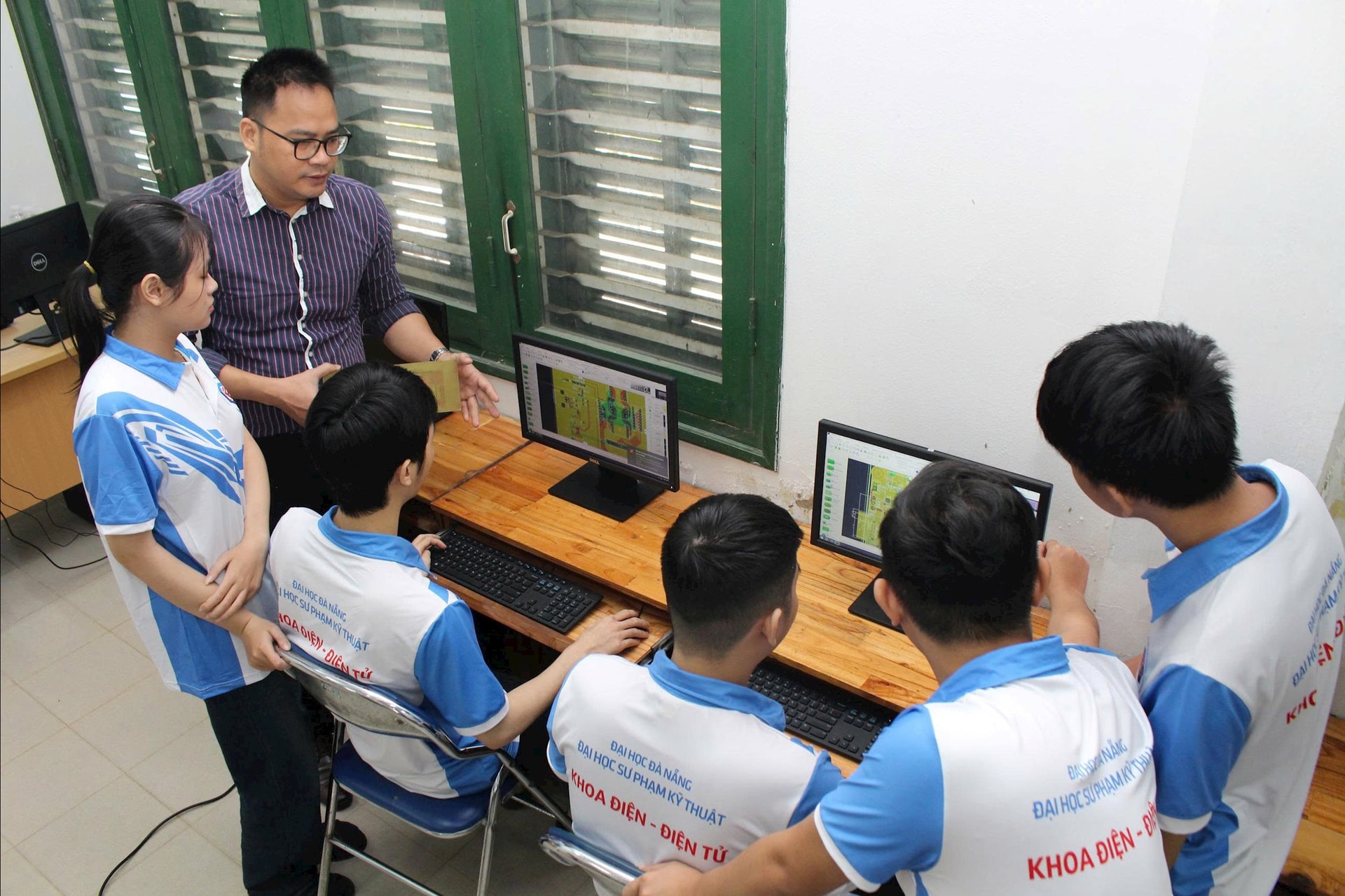
Vietnam - Korea University of Information and Communications Technology (VKU) is one of the pioneers in opening the Semiconductor Design Engineering major, enrolling 70 students in 2024 with a benchmark score of 27, among the highest in the country.
VKU provides financial support, scholarships, free first-year dormitories, and calls on businesses to join in creating career opportunities. In 2025, the school will continue to recruit 80 students with the goal of maintaining high input quality.
Dr. Huynh Ngoc Tho, Vice Rector of VKU, said that the teaching staff is the key factor. In 2024, VKU coordinated with the DSAC Center, the Institute of Information Technology (VNU Hanoi) and Synopsys to organize the first training course for lecturers on microchip design in Da Nang. At the same time, VKU lecturers participated in microchip testing and packaging courses organized by Arizona State University (USA), sponsored by the US Department of State.
Currently, VKU has more than 30 lecturers in the field of microchips, trained in England, France, Japan, Australia, Korea, Taiwan (China). Thanks to the ODA project of the Korean Government, many lecturers have been sent to Korea for professional training and access to new technology.
The facilities are heavily invested with the Semiconductor and “Smart” Technology Center (VKU-SSTH), copyrighted software Synopsys, Cadence, IoT & Microchip Lab from the World Bank project...
VKU connects training with businesses through the Microchip Club (VKU-ICC), the Japanese-Vietnamese bilingual program with NiX Company, and cooperation projects such as "Developing microchips to accelerate AI systems to detect real-time malware" with Connexus. The school regularly organizes seminars with international partners such as IEEE CASS, LG, Samsung... to help students access new technologies and expand research cooperation.
Up to now, VKU has invested in building a modern laboratory, gradually completing it and by March 2024 officially established and opened the Center for Semiconductor Microchips and Smart Technology (VKU-SSTH) with a system of advanced equipment and international copyright software such as Synopsys, Cadence, ... creating an international standard learning and research environment.
The University of Technical Education (University of Danang) also opened a major in Microchip Design, enrolling the first class of 50 students in 2024. According to Dr. Nguyen Linh Nam - Vice Principal, the school focuses on building a team of lecturers, sending 25 lecturers and 30 students to participate in short-term training courses on semiconductors and microchip design organized by domestic and foreign units.
The school cooperates with many businesses such as Acronics, Veron Group, TreSemi... to create conditions for practice and internship for students. Businesses invest in modern machinery for laboratories, such as Accretech Vietnam Company (Tokyo Seimitsu Group, Japan) sponsoring the precision measurement engineering room.
The school also expands international cooperation with Thailand, Japan, Finland, France, UK, Singapore… and implements 3 projects under the European community ERASMUS+ to improve lecturer capacity, promote renewable energy and improve training programs in the fields of robotics and digital technology.
Dr. Nguyen Linh Nam affirmed: "These cooperations help the school create a dynamic learning and research environment that meets international standards, while also promoting the school's image to the region and the world."
With the synchronization from the city's strategy to the efforts of schools, research institutes and businesses, Da Nang is gradually forming a high-quality human resource ecosystem, meeting the requirements of developing key technology industries.
Investing in people is not only a strategic step but also the foundation for Da Nang to break through and become an attractive destination for global technology investors in the next decade.
Source: https://baodanang.vn/chuyen-doi-so-bat-dau-tu-nhan-dan-bai-cuoi-phat-trien-nguon-nhan-luc-chat-luong-cao-3299500.html



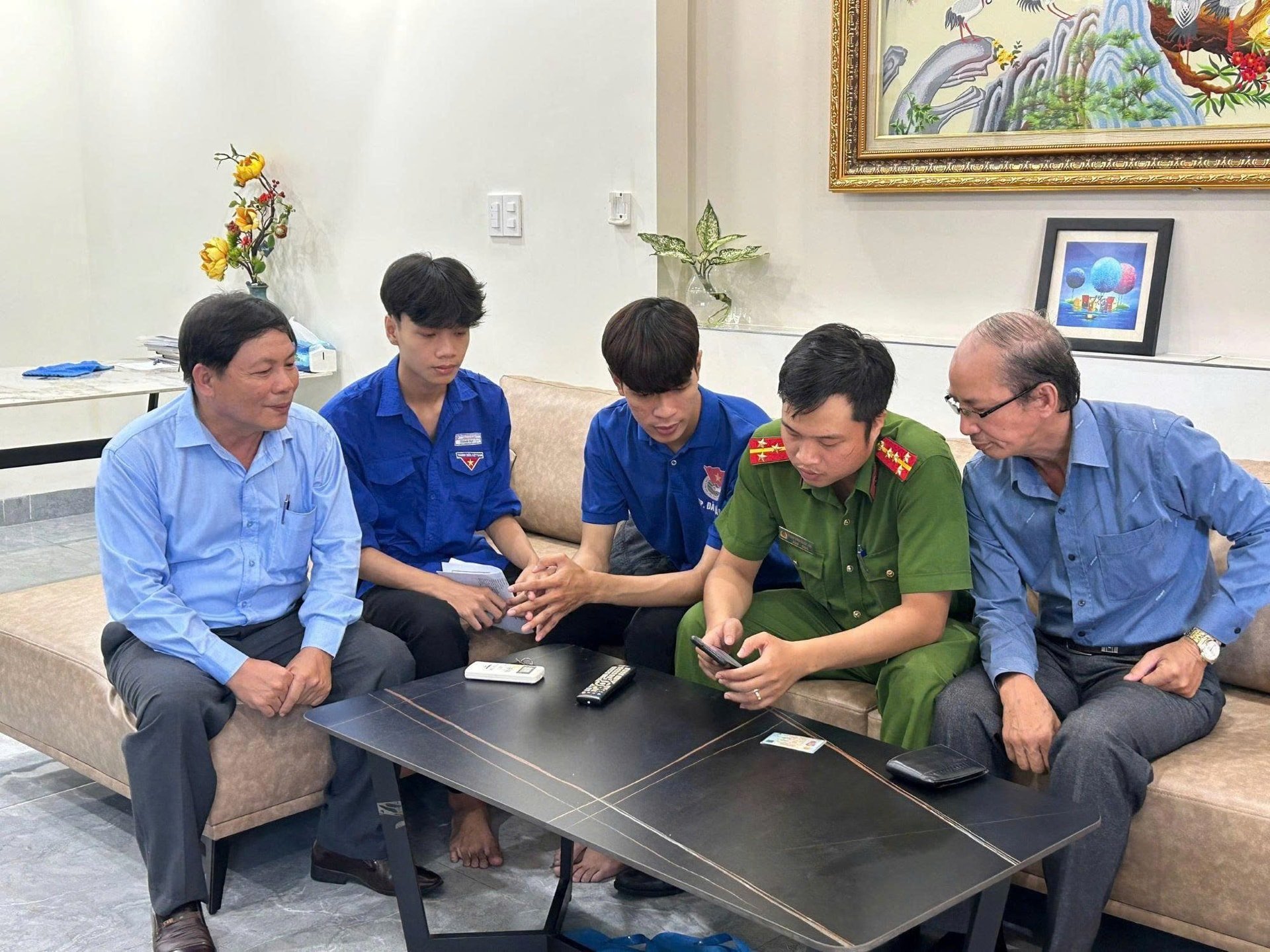
![[Photo] General Secretary To Lam and National Assembly Chairman Tran Thanh Man attend the 80th Anniversary of the Traditional Day of the Vietnamese Inspection Sector](https://vphoto.vietnam.vn/thumb/1200x675/vietnam/resource/IMAGE/2025/11/17/1763356362984_a2-bnd-7940-3561-jpg.webp)





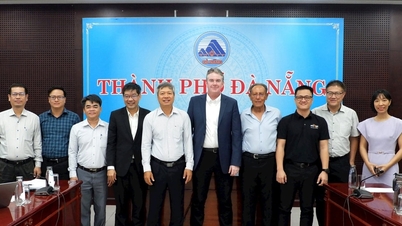
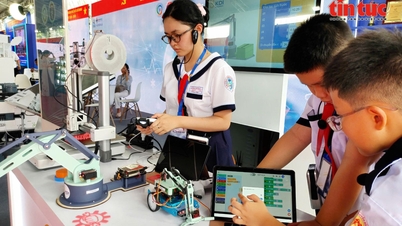

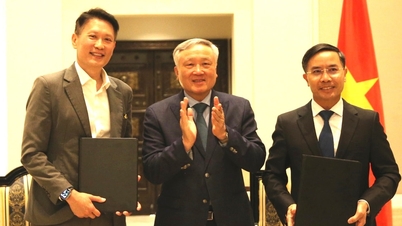
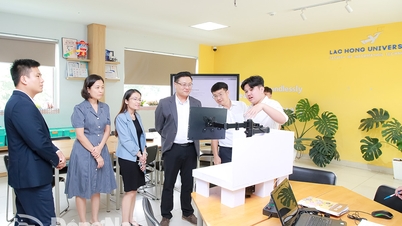



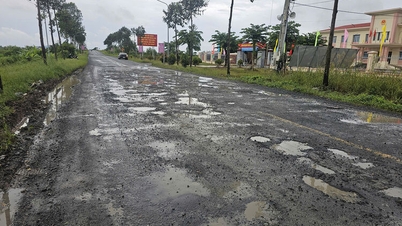

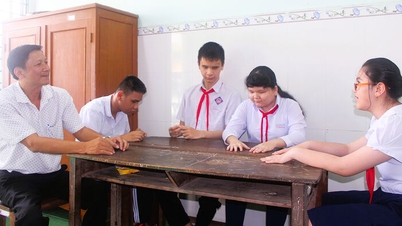
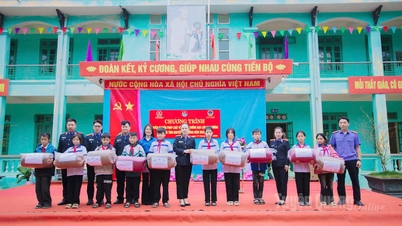



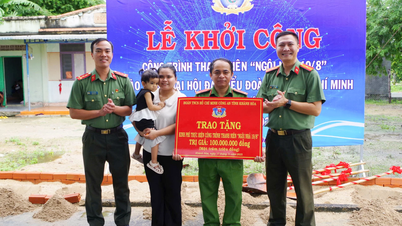
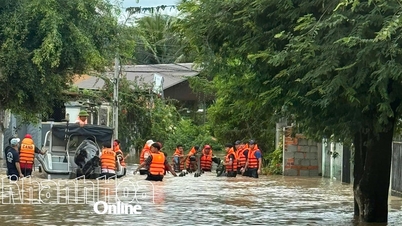





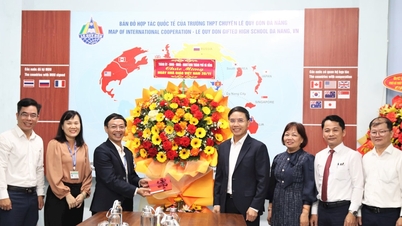
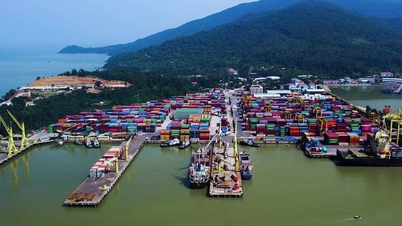

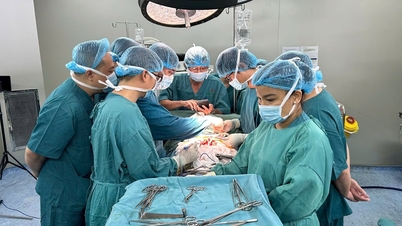
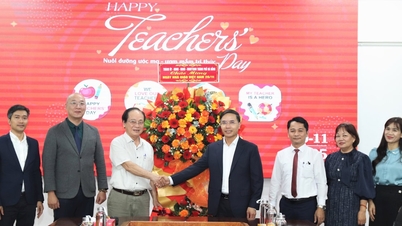



























































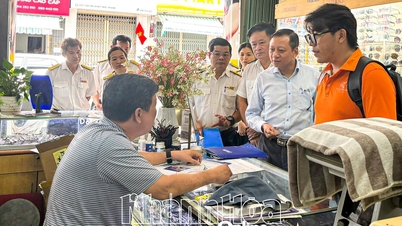








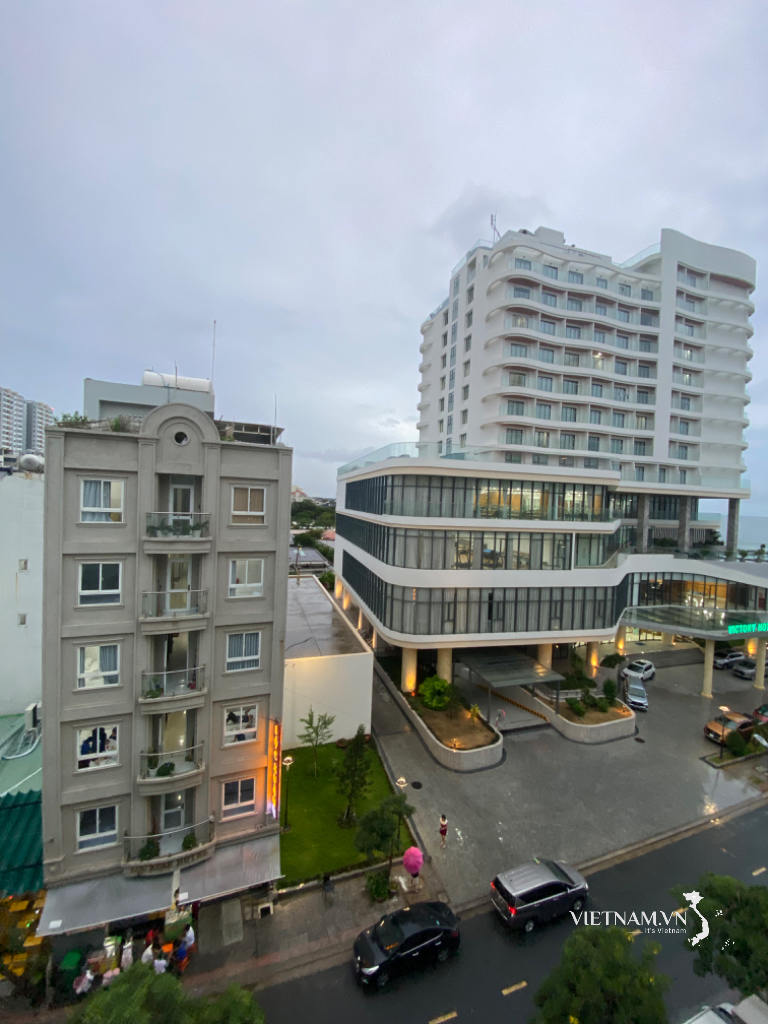



Comment (0)